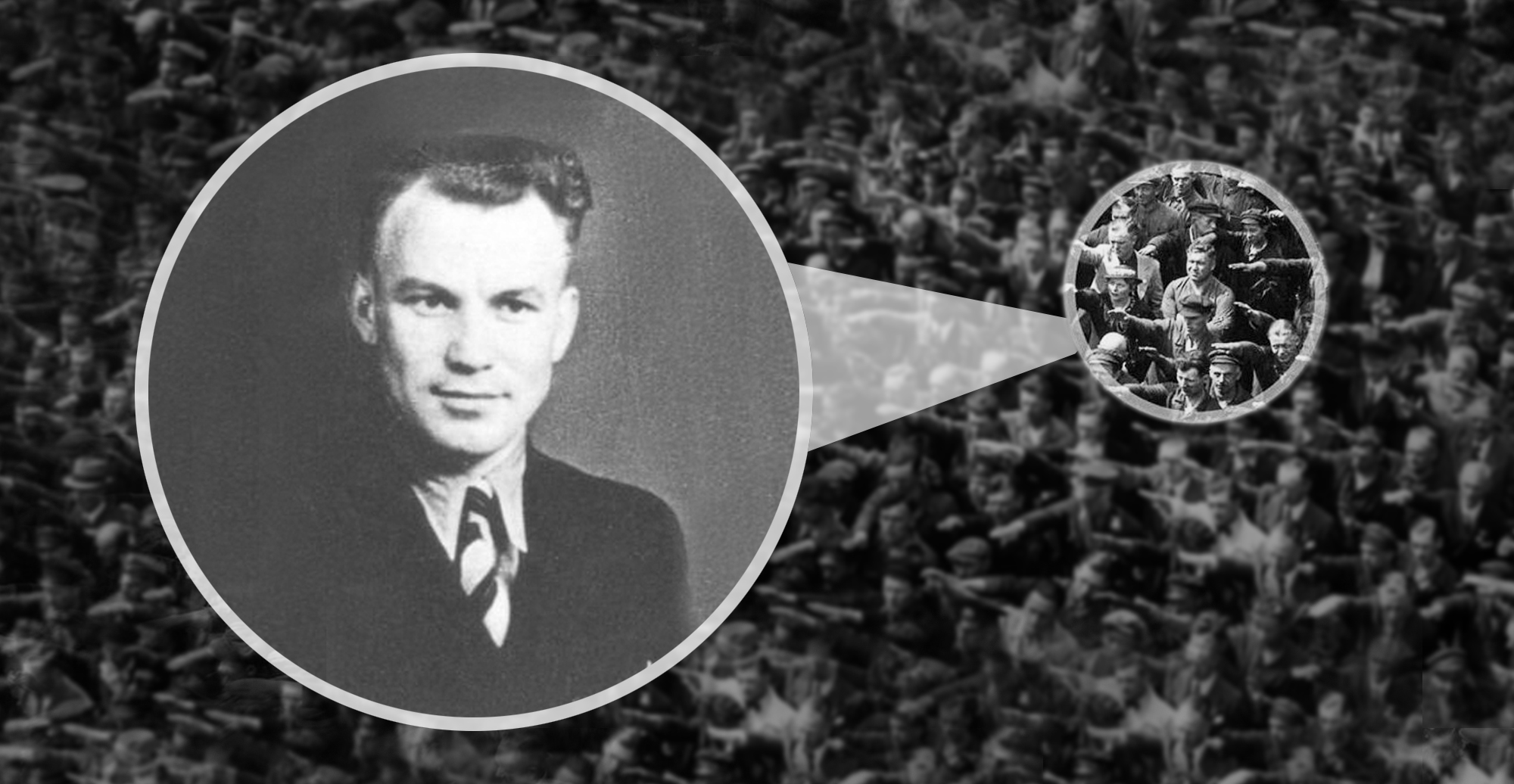People are mostly judged on their actions and by what they do. But sometimes what people don’t do can be just as revealing, particularly in wartime.
During the reign of Adolph Hitler and the Third Reich, those who disagreed with its policies often kept their opinions to themselves. As soon as he became Chancellor of Germany, Hitler made it clear that he would brook no disobedience from citizens, and that retribution would be swift for anyone who dared to oppose him.
In many cases, those who disagreed chose to work quietly for the Resistance, undermining the Third Reich in any manner possible. All over Europe, these people went about their daily lives while working undercover to sabotage the Nazi war machine whenever and wherever they could.
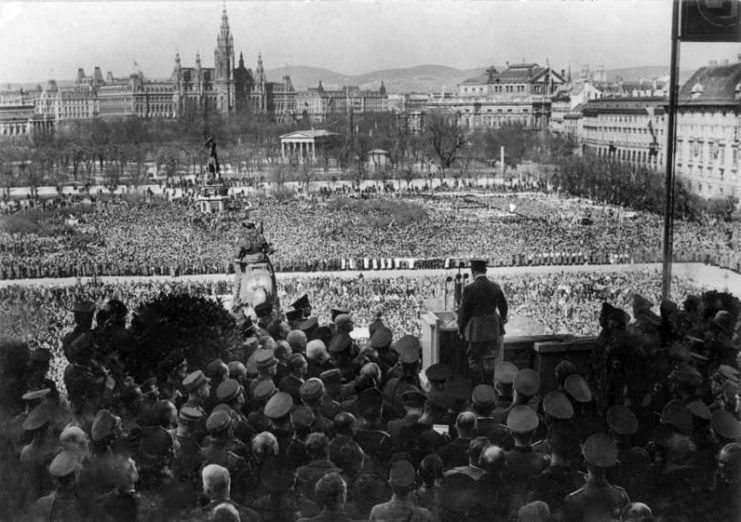
But before the war began in 1939 following the invasion of Poland, citizens just worked and lived under Hitler. He might have been objectionable, but few resisted him because the price was too high. In that context, the story of August Landmesser is all the more remarkable.
Landmesser wanted to be a good German. In 1931, he joined the Nazi Party because he desperately needed a job and the party helped its members in that regard. Unemployment was rampant in Germany after the First World War, and many people became Nazis because it gave them an advantage when seeking work. In those early years, most had no idea that it would lead to war, concentration camps, and more.
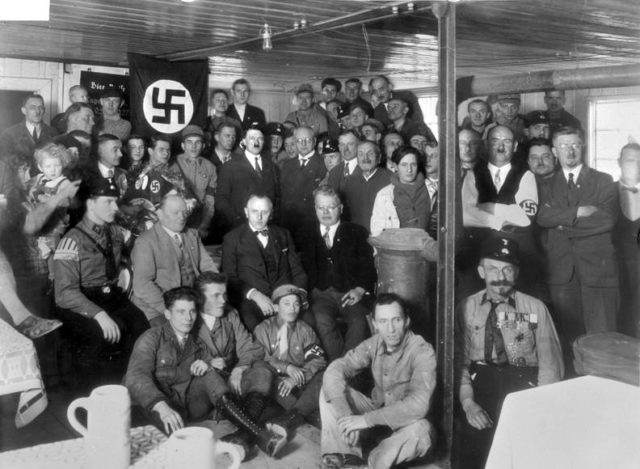
One day in June 1936, Adolph Hitler attended a ceremony in Hamburg for the launch of a new naval vessel, the Horst Weissel. All the men from the factory were gathered outside to hear him speak, Landmesser among them. Everyone, not just soldiers, was expected to salute Hitler as a sign of deference and respect. In a photo taken that day, only one man among dozens defiantly stands with his arms crossed across his chest: August Landmesser. In the 10 seconds it took him to make that decision, Landmesser’s fate was sealed.
To make matters worse, Landmesser fell in love with a Jewish woman, Irma Eckler, and they intended to marry. But then the party instituted a racial policy known as the “Law For The Protection of German Blood and German Honour.” Even though Eckler was pregnant, they could not marry. Nonetheless, the couple carried on together and had a daughter.

As life became increasingly difficult, they decided to leave Germany. However, when they tried to do so in 1937, they were arrested at the Denmark border.
Landmesser was charged with “dishonoring the race,” but released with the warning that if he continued, he would be sent to prison. Despite this, the couple did not separate. In fact, Eckler was pregnant again.
She was arrested by the Gestapo and passed through three different camps while Landmesser was sent to prison. Eckler gave birth to her second child while in prison but was ultimately sent to the Bernburg Euthanasia Centre, where she and 14,000 other women died.
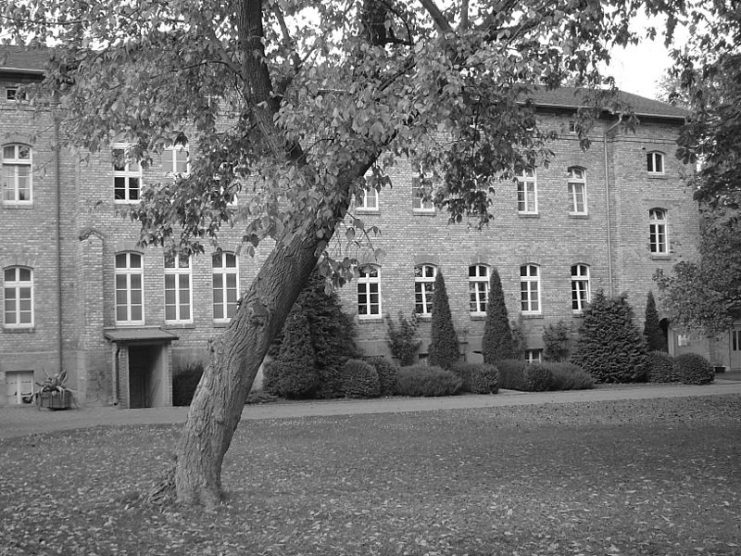
Landmesser was released from prison in 1941. Because Germany was at war and needed labor, he found a factory job in Warnemunde. By 1944, the war was consuming German men at an alarming rate, so even “ex-convicts” were drafted. But they were sent to the worst areas of combat and had little chance of survival. August Landmesser died in the Balkans in 1944.
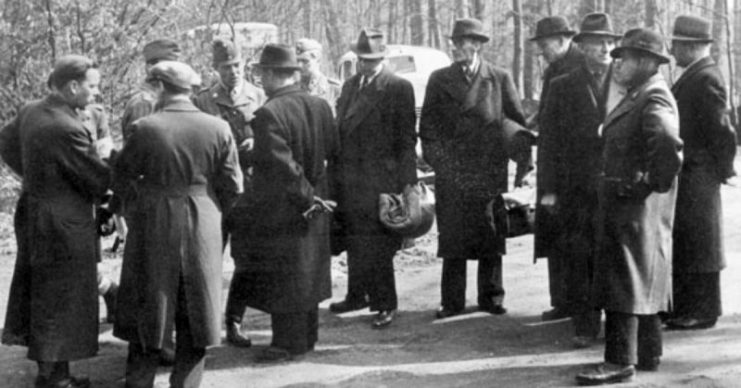
Read another story from us: Forbidden Love: Auschwitz Prisoner and SS Guard Developed Relationship
Germany has atoned for many sins committed against its citizens by the Nazis, and that includes Irma Eckler and August Landmesser. In 1951, their marriage was legally recognized and given its proper status. One daughter, Ingrid, has taken the surname Landmesser, although the other daughter, Irene, remains Eckler.
The latter has written a book about her parents’ struggles, The Guardianship Documents 1935-1958: Persecution Of A Family For “Dishonouring the Race.” It was published in 1996.
An internet search for Landmesser reveals the famous photograph in which he asserts his beliefs, silently but fiercely. It is captioned: “Be More Like This Guy.” Let’s hope everyone who sees the photograph agrees.
